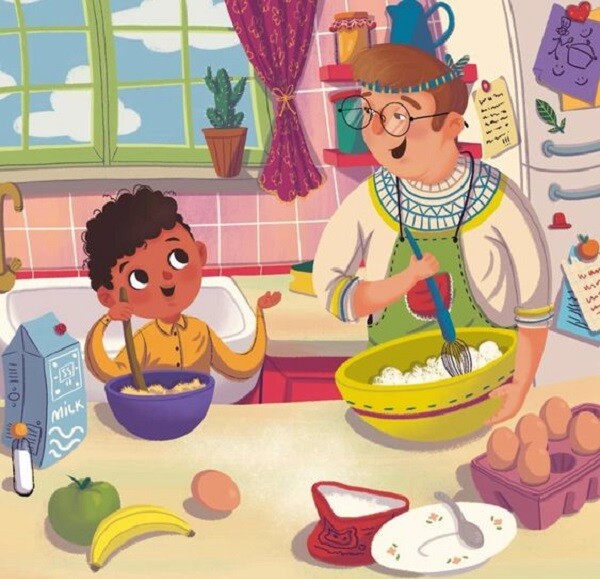A wealth of scientific research indicates that certain habits and abilities formed during childhood have a significant impact on adult success. So, what do gifted children have in common?

They actively contribute to household chores
According to a study, children who actively participate in household chores from a young age have a 15:1 chance of gaining employment later on, and a 6:5 chance of higher income. This suggests that doing chores instills vital life skills that profoundly influence a child’s future career prospects.
Specifically, the findings indicate that children who are not encouraged to help with household tasks at a young age may struggle more with employment as adults.
Through chores, children develop self-reliance, time management, and a sense of responsibility—all essential factors for adapting well to the working environment later in life.

Encourage children to take part in household chores.
On the other hand, children who do not develop this habit may face greater challenges in building their careers.
Additionally, by contributing to household chores, children learn to become independent and develop social and communication skills. These skills are invaluable in a work setting, where collaboration and teamwork are essential. Children who are accustomed to working together in a family setting will find it easier to interact and collaborate with colleagues in the future.
Furthermore, participating in household tasks teaches children the value of hard work. They understand that everything requires effort and responsibility, from maintaining a clean living space to preparing family meals.

They enjoy making friends
Children who enjoy making friends typically possess strong communication skills and exhibit enthusiasm and openness in their interactions. They are adept at building and maintaining effective relationships. These children tend to be confident, good listeners, and empathetic, creating a positive environment.
A well-known Harvard experiment that spanned over half a century revealed that individuals with strong personal relationships in their youth earned, on average, $87,000 more per year as adults than those with cold and detached relationships.

Encourage children to develop strong friendships.
This outcome highlights the income disparity and underscores the importance of social relationships in building a career and achieving life success. Children who know how to make and keep friends will have more opportunities to develop professional skills, expand their network, and seek future career prospects.
Additionally, strong communication skills enable children to build trust and respect with others, which is crucial in a work environment. Effective interaction facilitates problem-solving and enhances teamwork and leadership abilities.
Moreover, children who enjoy making friends tend to develop emotionally, learning to share, empathize, and support one another, thus forming essential moral values.

They are problem solvers
Being a problem solver reflects three key aspects: confidence, competence, and decisiveness. Children with these traits are more likely to think, “How can I solve this?” rather than “How can I get out of this?” As they tackle challenges, their capabilities are refined and strengthened.
Consequently, children who embrace problem-solving mature and gain valuable life experiences as they grow up.
To raise a gifted child, parents should focus on a holistic parenting approach:
Firstly, avoid being overly strict with your child. Excessive seriousness can stifle their creativity, flexibility, and empathy.
Secondly, model positive behavior and create a healthy, harmonious home environment for your child to thrive in.

Encourage children to be problem solvers.
Thirdly, be mindful of your emotions and avoid venting negative feelings in front of your child. Refrain from crying, anger, or complaining excessively.
Lastly, it is crucial to adapt to your child’s developmental stage. Allow them to “do whatever they want” within safe boundaries. For instance, if they should be dressing themselves, folding their blankets, or washing their socks, give them the autonomy to do so.
In reality, certain behavioral patterns and personality traits exhibited in early childhood can significantly influence a person’s development as they grow up.
Therefore, parents should aim to understand their child’s potential, nurture them with the right mindset, and instill a sense of responsibility so that they can flourish and excel as adults.
The Savvy Mom’s Guide to Unlocking Your Child’s Math Genius: 99% of Students Become Top Math Students by Using This Method Before Elementary School
“Nurturing a strong mathematical foundation in children aged 2 to 6: A guide for parents.”
This guide aims to provide parents with simple yet effective strategies to foster a love for math and build a solid mathematical foundation in their children from an early age. With easy-to-implement activities and tips, parents can empower their children to develop essential numerical skills and a positive attitude towards math, setting them up for future academic success.






































